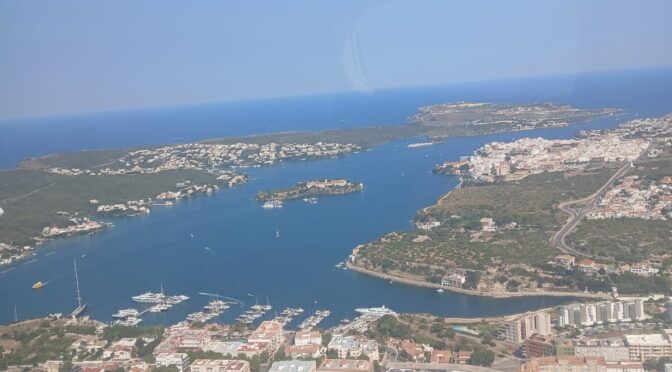Views: 203
The general interest of the population towards the sea is growing considerably year after year. Therefore, the activities carried out there have multiplied. Thus, the anthropic pressure and threats affecting the habitats of the seabed have also increased, with a significant impact on the coastline.
Specifically, in the port of Maó, the phenomenon of commercial boating has skyrocketed, with constant expansions of facilities that end up being occupied at speculative prices. It is a growing market, but one that corresponds to a seasonal operation, which ends up displacing local boats of a more social kind, transforms spaces with natural values within the port, and which, for years now, has exceeded the island’s nautical carrying capacity.
Nevertheless, years ago, there were other port economies that could find new viability today and could prove more compatible with the conservation of the Maó harbour. These are activities that could have a stronger link with the traditional culture and the remaining heritage.
One of the proposals that is presented as an innovative and resilient model is regenerative aquaculture. An activity framed within the blue economy that not only seeks food production but also aims to improve the health of marine and coastal ecosystems.
Specifically, regenerative aquaculture refers to the combination of different crops. The farming of bivalves such as mussels, flat oysters or clams —activities that have been carried out historically in the port— is complemented by the cultivation of Mediterranean algae. This captures carbon and nutrients, can improve water quality and also contributes to the creation of micro-ecosystems with great biodiversity.
In this II Regenerative Aquaculture Seminar, we want to present two points of view. The first will show us the great shellfishing potential that the port of Maó once had, presented by Adolf Sintes. The second will show a current experience of seaweed cultivation, presented by Raül Golo.
In recent years, the largest natural bay in the Mediterranean has lost cultural and natural values. This seminar seeks new forms of economy that can help maintain this historical and heritage legacy.
The registration fee for the seminar is €15 for the general public, including the price of lunch. There are discounts for shellfishers or fishers and also for GOB members.
The II Regenerative Aquaculture Seminar is supported by Menorca Preservation and Marilles Foundation.

